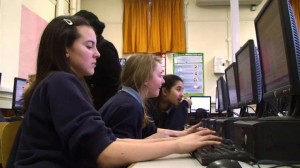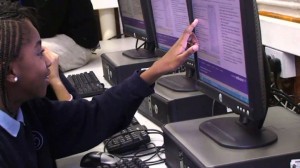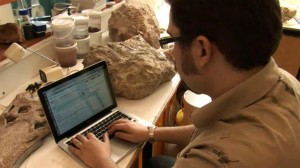I’m a Scientist is getting more popular than ever in the UK and abroad. Events have taken place in Kenya, Vietnam, Spain, the USA, Ireland, Australia and Malaysia.We are working with organisations in a wide range of countries to invite them to run I’m a Scientist and to be part of a wider international network of I’m a Scientist (and I’m an Engineer events).
On these pages you’ll find information about how you can run the event, the terms of service and news about events happening elsewhere around the world.
We’ve been asked a good few times recently about running I’m a Scientist in other countries. This page should explain a little more about what is involved and how we can work with others internationally.
The page is only the start of the conversation. Every country, every partner, every funder will be somewhat different and here we have the skeleton, the agenda, rather than the blueprint.
There are three basics questions to answer:
Key reasons:
- Giving some power to young people gives them a reason to engage and shows that they are trusted
- The fact that it’s real – real scientists, real science, real prize money – makes it far more vivid
- The intimacy of the medium makes it easier to break down barriers and make connections
And this led to 4 key outcomes for young people
- They realised scientists are real, interesting, fun people
- They were inspired and enthused
- Developed debate and discussion
- Developed an understanding of the process of science
And 3 main outcomes for scientists
- Energised and inspired
- Developed their communication skills
- Realised the benefits of engaging with the public
More information is available in the evaluation report from the first pilot.
There are 6 main blocks of work in the event:
1. Teacher recruitment
Along with the scientists, teachers are the lifeblood of the event. We have recruited a loyal group of teachers who have been involved in the development of the event from the beginning. We have also developed significant recognition of the I’m a Scientist brand through the event and the I’m a Scientist Debate Kits. Through our pilots we have allowed teachers to test out the event before letting entire year groups participate. We’ve learnt what problems the teachers may face and continue to explore ways of makes the event even easier for teachers.
2. Scientist recruitment
Word of mouth amongst scientists spreads very quickly and in June 2010 we had 170 scientists apply for 100 spaces. That is the outcome of taking every opportunity to promote the event to scientists. Working out the zones and allocating scientists to zones is a delicate task. With each event our experience helps us improve that aspect of the event.
3. Information packs
Teacher packs contain lesson plans, information sheets and briefing notes. Every year we update and improve these based on the extensive feedback given to us. The same applies to the scientist briefing notes.
4. Website
The website, recently redeveloped, is the cumulation of years of experience and about £100,000 of investment. It has been fine-tuned to cope with the traffic created during peak times and without the back-end administration tools the event would be unmanageable. We continue to invest in the site to keep up with changes in technology and people’s online behaviour. The participants’ feedback is crucial in helping us prioritise what needs doing first.
5. Event team
In June 2010 there was a team of 12 working mostly behind the scenes making the event run smoothly. A team of 8 moderators, teacher liaison, scientist liaison and 2 tech staff let the event pass smoothly. 8 years experience of running similar events means the recruitment, training and management of that team is more efficient that ever.
6. Evaluation
The pilot of I’m a Scientist generated a 126 page evaluation report. Every event we run gets evaluated and as such we have excellent benchmarking data and we are skilled at knowing what data to capture which is essential to understanding how the event is performing.
Before we get to stage 1 of producing the event we need to have funding in place. Much as we’d like to fully fund the event, we can’t. However, we can help as long as we can see a route to a fully funded project in the future. There may be possibilities to get sponsorship or match funding prior to a fully funded project.
1. Pilot Stage
The pilot stage isn’t to test the event as such, but more to act as a pump primer. Things like lesson plans will need to be adapted for the local context, and tested, but much of that will happen during the development stage.
In the UK we ran the event in June 2008, March 2009 and March 2010 before the 20 zone event that took place in June 2010. Those first implementations were necessary, not just to develop the event, but also to create interest in the event and to allow us to better understand our recruitment activity. They allowed the more adventurous teachers and scientists to test the waters before the masses followed.
We recommend running an initial pilot of 3 zones, before a larger event the following academic year.
2. Roll out
The size of the roll-out will depend on the response to the pilot. It is important to be over-subscribed with teachers and scientists wanting to take part. In the UK we have benefited from the Debate Kits project which allowed us to build a database of over 1,000 teachers who had already bought into the I’m a Scientist brand. Each country will have its own dynamics.
There’s a lot to learn when scaling the event up, in terms of administration, communication and IT resources. For example our experience in June 2010 with 20 zones tested our present server capacity to the limit. We thought we knew what to expect, but the event was even busier than we’d anticipated. We will be revising our procedures and server technology before running an event with more than 20 zones.
3. On-going
I’m a Scientist shouldn’t be a one-off. We’ll invest time and money building a reputation, learning about how scientists and teachers react to the event in your country and that effort will pay off in subsequent years. A major element of the UK activity is now about how to make the event sustainable. More will follow on this over the next few months.
So there’s the plan: 3 zone pilot, roll-out of up to 20 zones, repeat as much as possible. How does that get delivered?
Local Partner
We want to work with a local partner in each country where I’m a Scientist can be run. Although we are confident enough of our ability to run the event anywhere, our model for overseas expansion is currently based on us working with a local partner. That partner could be a science communication agency or an individual with a keen interest in science communication. The key factors we look for is someone with local knowledge of science education and scientists, and with a successful track record in applying for funding or indeed someone with the funding in place.
If you’ve read this far and want to talk more then please do get in contact with me, Shane McCracken, via email or telephone +44 1225 326892.





I am interested in getting (staying) involved with IAS variants, particularly in Germany, Eastern Europe and the developing world.
Thanks for the offer Daniel. Your support is much appreciated. I’ll email you.